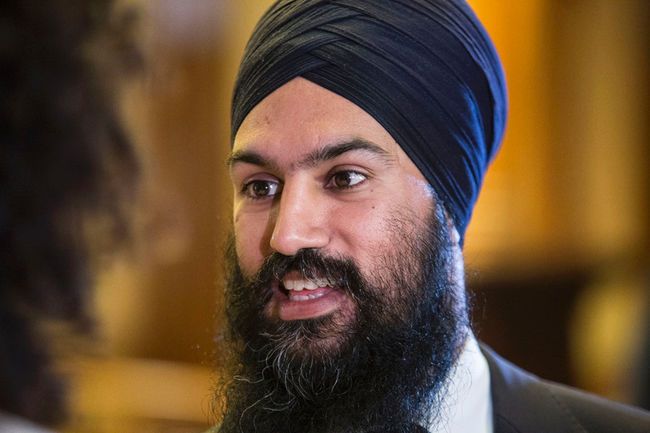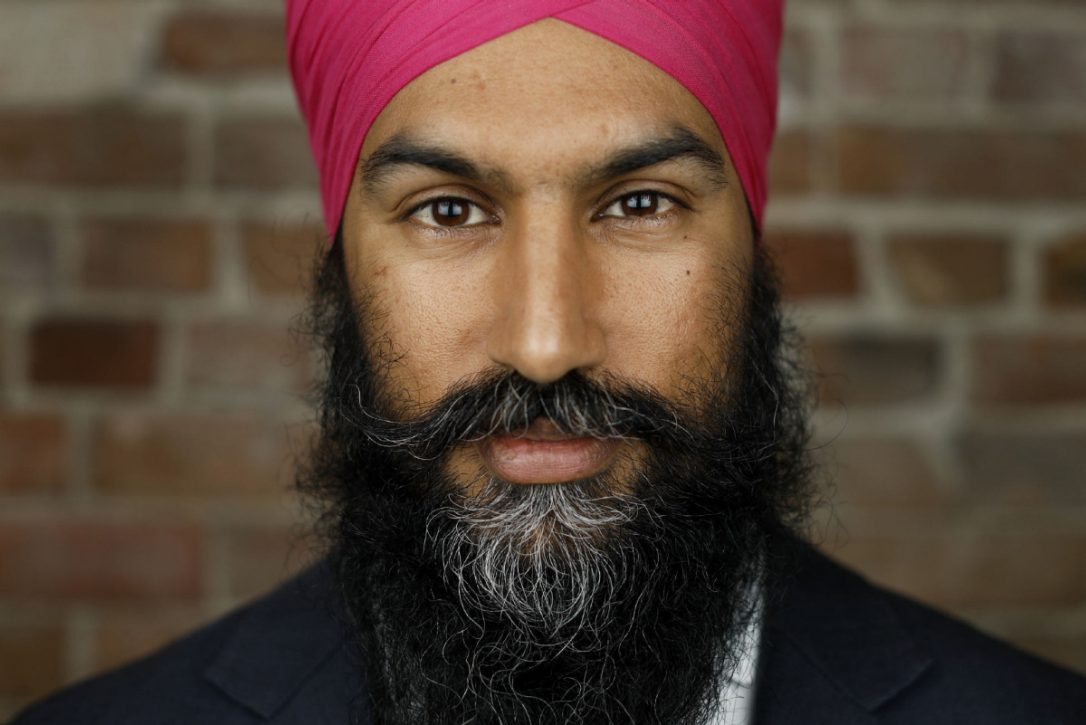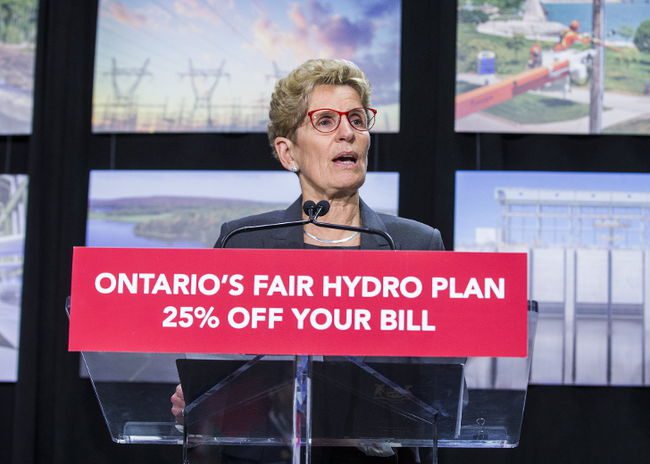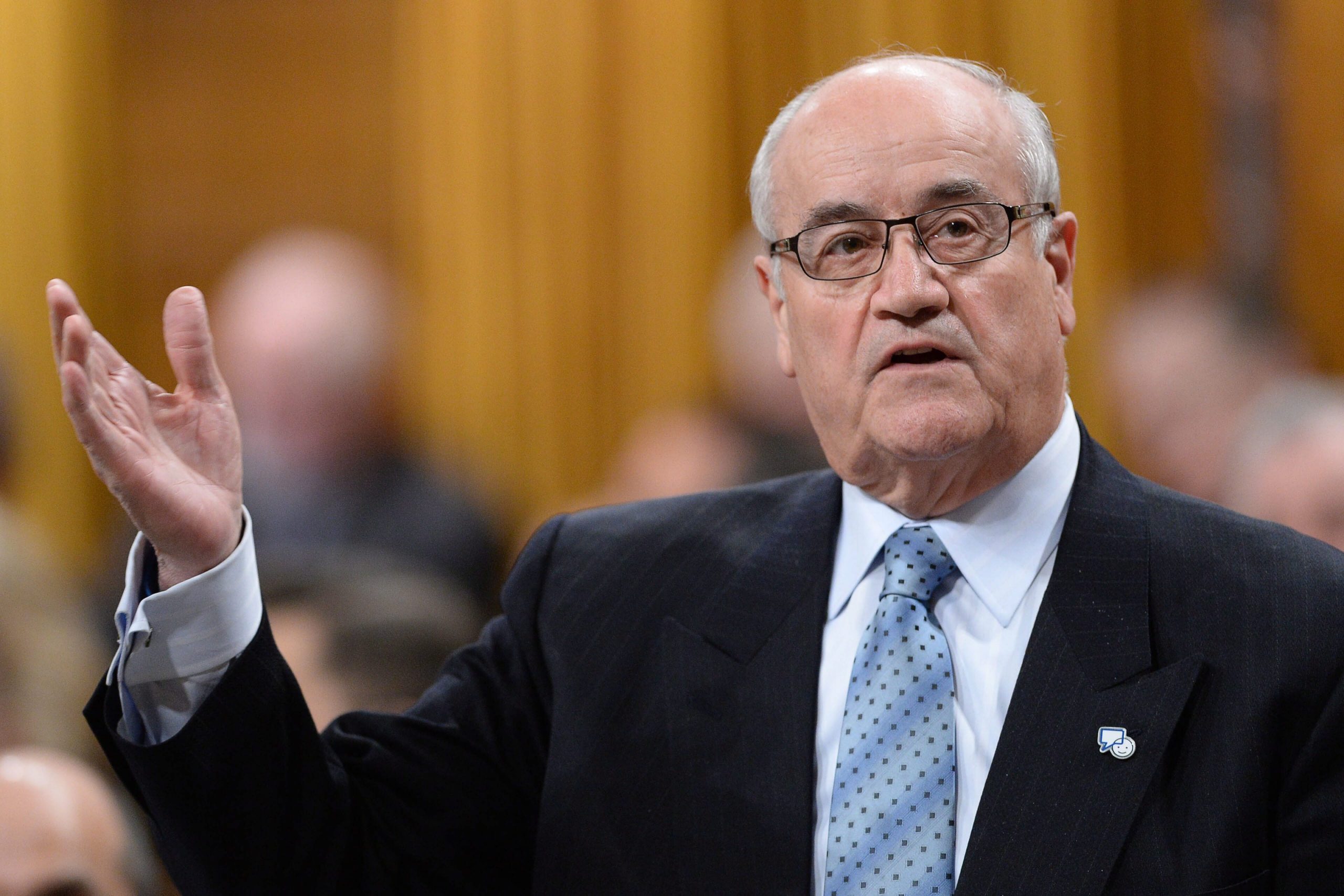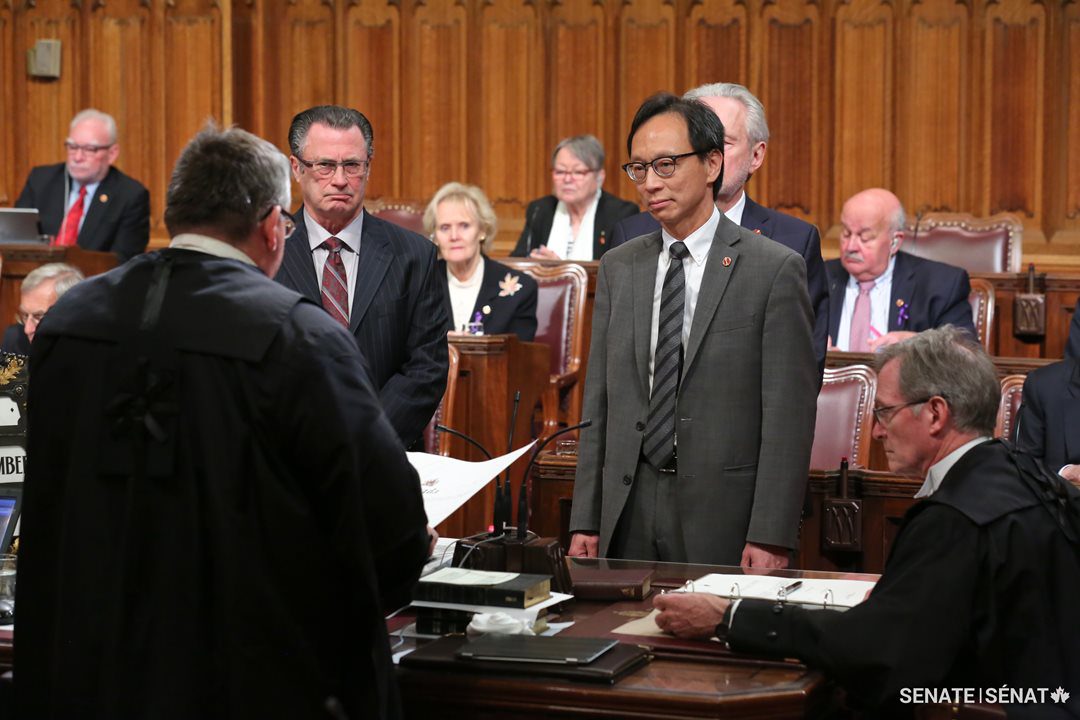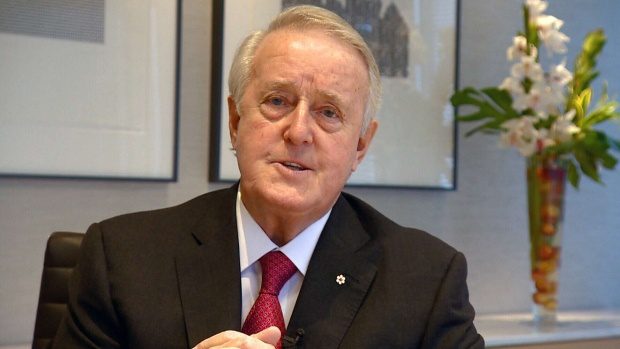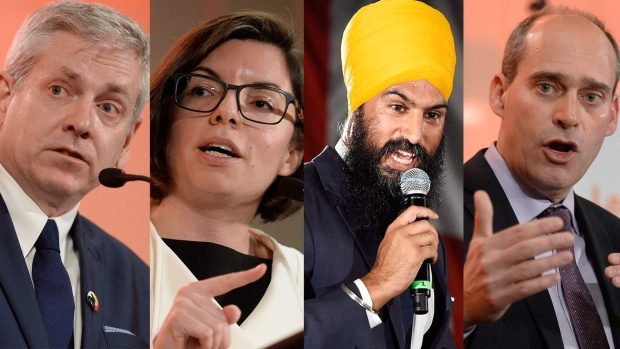The four NDP leadership candidates made their last official pitch Sunday at the official NDP Leadership Showcase in Hamilton. Online voting has now begun but was any of Sunday's performance enough to change anything?
It's been 700 days since the last Federal election, 528 days since Convention delegates decided to unceremoniously dump Tom Mulcair in Edmonton. 124,000 members will finally get to have their say about whom should lead the New Democrats into the 2019 election.
Despite Quebec having only 4% of the members, the province was a major part of every candidates' presentation.
Guy Caron casted himself as a bridge builder between Quebec and progressive Canadians. In fact, it was the main message during his showcase with the bulk of his allotted time being used by key supporters and by three short videos. Four different MPs came on stage to praise Caron's bridge building capacity, a message reinforced by Steelworkers president Ken Neumann, who pointed out that Steelworkers know a thing or two about building bridges.
It took a long time for Caron to finally take the stage himself. He was introduced by his wife Valerie and walked on stage with his kids. Caron's arrival was upstaged by his son Dominic's dance moves, a big hit on social media.
Caron repeated the importance of maintaining and growing support in Quebec, something that is essential to the NDP's success. Caron is quite right: the NDP will not form government federally unless it is able to recapture a sizeable number of seats in La Belle Province. Caron believes he is the best positioned to do it and he certainly makes a good case. As a native son, a staunch federalist and a credible progressive economist, Quebecers already see Caron as a step ahead of the other NDP leadership candidates as they consider their next federal ballot.
However, Caron made the strange decision to once again raise the debate about religious symbols and clothings, repeating his position that he disagreed with any ban as proposed by the Quebec government in Bill 62, but that he respected the right of the National Assembly to adopt such a law basically saying he wouldn't do a thing about it.
For many Quebec New Democrats, including Longueil-St-Hubert MP MP Pierre Nantel, that is the only position they would accept: "We don't want to see any ostentatious religious symbols. We think that is not compatible with power, with authority," he said this week-end. For other New Democrats, a right is a right is a right, Sherbrooke Declaration be damned.
By raising the issue, Caron was either courageous or reckless. Either way, the bridge Caron is trying to build rests on a very fragile foundation.
Ontario MP Charlie Angus had the strongest performance. He spoke with emotion, connected with the audience and brought up people on stage to illustrate what, or rather who this campaign was about.
Angus' camp highlighted his record as a longtime advocate for Aboriginal issues. On stage with him, Serena Koostachin, who told the audience how the punk-rocker with a big heart helped her 13-year-old sister, Shannen, bring attention to plight of aboriginal youth in Attawapiskat, who were going to school in makeshift portables because the actual school had been condemned due to a decades-old fuel leak.
"You and your sister taught me and the nation that Indigenous youth have incredible power to make change. And this is why I am here. To be a partner, to be an ally," Angus said with tremors in his voice.
Angus then brought to the stage an auto worker from the Cami automotive plant in Ingersoll, Ontario, who is now on strike. This was another example of Angus' main message he's got your back and he will fight the corporate interests and their friends in the Trudeau government; he will stand up for workers.
Niki Ashton continued with the same themes of her campaign, targeting youth and millennials. She proceeded to enumerate a long list of goals and objectives: eliminate tuition fees, put pharmacare in place, create a national childcare system, establish a Crown corporation to fight climate change, etc. That platform is certainly ambitious, or, as Ashton puts it, "bold and progressive."
How will she achieve all these things? By dislodging Justin Trudeau in 2019, of course. There hasn't been any other answer during her entire campaign. So Ashton had a message for Trudeau: "Enjoy being prime minister while it lasts. … Canadians know that only the NDP will bring real change." Let's not ask Canadians if that is indeed the case.
The presumed frontrunner Jagmeet Singh ran on stage to a backdrop of cheering supporters. After a slow start, Singh got going when he recalled his struggles as a young Sikh and his encounter with police, "for no other reason than the colour of my skin."
Singh also addressed the religious symbols issue head-on, repeating his pitch to Quebec: "I've discovered that francophones in Canada and in particular Quebecers have faced similar pressures around their language and their identity," he said. He learned French as "an act of solidarity", he added.
To Pierre Nantel and others, he made clear that his values include a firm belief "in the separation of church and state." Singh reinforced the point: "I can assure you that my spiritual beliefs are not in conflict with my New Democrat values and progressives."
But many remain skeptical, having a hard time looking beyond the turban and the beard, as Singh pleaded. A scepticism reinforced by the fact that Singh once brought a bill to exempt turban-wearing Sikhs from wearing motorcycle helmets.
But Singh also underlined his fundraising and organizing capacity, touting the thousands of new members he signed up during the race a lot of them from Liberal-held ridings. Singh pointed to this success as evidence of what he can do leading up to 2019. "Think about what we've been able to do in a few short months. Now imagine what we can build together in two years," Singh said. Many New Democrats are sensitive to this argument. The party is starved for money and has yet to pay its 2015 election debt.
In the end, the event probably didn't change the game much. Angus was at his best, doing all he could to alleviate concerns about a perceived top-down approach. His emotional connection could have convinced many undecided. But Singh did well enough to leave Hamilton feeling confident about the first round results. Ashton's mantra probably only achieved to re-motivate her base, while Caron didn't have enough sparks to convince a critical mass of his round two supporters to vote for him in the first round.
Meanwhile, New Democrats have started to vote and are thankful that the end is near.
The views, opinions and positions expressed by columnists and contributors are the author’s alone. They do not inherently or expressly reflect the views, opinions and/or positions of our publication.



